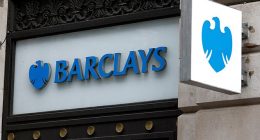APRIL marks the end of the tax year and here we explain everything you need to know about going into the next one.
In the UK, the tax year runs from April 6 to April 5 – not from January to December like a calendar year.
Each tax year you get certain allowances, like how much you can earn, save and put into your pension before you start paying tax on it.
How much tax you have to pay can also change from one year to the next too.
Here we explain everything you need to know going into the new tax year.
When does the 2021/2022 tax year start and end?
The current 2020-2021 tax year comes to an end on April 5 and the new tax year for 2021-2022 started on April 6.
Many other countries around the world have tax years that run with the calendar year.
In Ireland, the US, France and Germany for example, it starts on January 1 and ends on December 31.
But in the UK for historical reasons, our tax year starts and finishes mid-way through the calendar year.
How much can I earn tax-free in 2021/2022?
The tax-free personal allowance – the amount you can earn before paying tax – will rise as planned from April 2021.
Over the past year, you could earn £12,500 before you started to pay tax.
For the tax year of 2021/2022, this will rise to £12,570 for basic rate taxpayers.
What can I claim tax relief on?
THERE are certain things that you can claim tax on under HMRC rules. They include the following:
- Expenses for working from home
- Repairing or replacing small tools needed to do their job (for example, scissors or an electric drill)
- Cleaning, repairing or replacing specialist clothing (for example, a branded uniform or safety boots)
- Business mileage (not commuting)
- Travel and overnight expenses
- Professional fees and subscriptions
If you earn over £12,570, you will start paying 20% tax on your income.
For higher rate taxpayers, you will not have to start paying 40% tax until you’re earning £50,270 – raised from £50,001 last year.
It means basic-rate taxpayers (those earning between £12,501 and £50,000) will earn an extra £14 a year.
Meanwhile, higher-rate taxpayers will get a maximum pay boost of £68 a year.
However, Chancellor Rishi Sunak announced in his Budget that these thresholds will be frozen until 2026.
This will ultimately lead to a pay cut when you take into account inflation.
You can calculate what your take-home pay is depending on your salary by using MoneySavingExpert’s free online calculator.
What to do if you’re newly self-employed
When the new tax year starts on April 6, HMRC will notify you about filling out a tax return for the year just past – so 2020/2021.
If you have become newly self-employed in the last year, you will need to register with HMRC for tax and National Insurance in order to get your notification.
To do this you can register online at GOV.UK, complete an online form CWF1, phone HMRC helpline for the newly self-employed, or completing an on-screen form before printing it off and posting it to HMRC.
When does my pension start getting taxed?
Annual pension allowance
The annual allowance is the maximum amount that you can save into your pension in a year before you get penalised with tax.
It covers all your pension pots including personal, workplace and final salary schemes.
It is currently set at £40,000 per year and has not changed for the 2021/2022 tax year.
What are the different types of pension?
WE round-up the main types of pension and how they differ:
- Personal pension or self-invested personal pension (Sipp) – This is probably the most flexible type of pension as you can choose your own provider and how much you invest.
- Workplace pension – The Government has made it so it’s compulsory for employers to automatically enrol you in your workplace pension, unless you choose to opt out. These so-called defined contribution (DC) pensions are usually chosen by your employer and you won’t be able to change it. Minimum contributions rose to 8% in April 2019, with employees now paying in 5% and employers contributing 3%. This is up from the 5% of contributions workers and companies were required to pay in previously, where employees contributed 3% and employers 2%.
- Final salary pension – This is a also a workplace pension but here, what you get in retirement is decided based on your salary, and you’ll be paid a set amount each year on retiring. It’s often referred to as a gold-plated pension or a defined benefit (DB) pension. But they’re not typically offered by employers anymore.
- New state pension – This is what the state pays to those who reach state pension age after April 6 2016. The maximum payout is £175.20 a week and you’ll need 35 years of national insurance contributions to get this. You also need at least ten years’ worth of national insurance contributions to qualify.
- Basic state pension – If you reached the state pension age on or before April 2016, you’ll get the basic state pension. The full amount is £134.25 per week and you’ll need 30 years of national insurance contributions to get this. If you have the basic state pension you may also get a top-up from what’s known as the additional or second state pension. Those who have built up national insurance contributions under both the basic and new state pensions will get a combination of both schemes.
Lifetime pension allowance
The lifetime allowance is the maximum amount that you can save into your pension without having to pay extra tax on top of any annual tax.
The current allowance is £1,073,100 and was expected to rise in line with inflation – but now it will be held until April 2026.
This means you will not be taxed on your pension on amounts up to the annual threshold for the next five years.
What is an Isa allowance?
An Isa (individual savings account) is a type of savings account where you don’t pay any tax on interest.
Each year you get an allowance which is the total amount you can save into it each year to take advantage of this tax benefit.
You can save up to £20,000 each year into an Isa and if you don’t use it up you can’t carry it over to the next year.
First-time buyers saving into a Lifetime Isa (Lisa) can save up to £4,000 into this account each year tax-free.
If you put your cash in a standard bank account that’s not an Isa, you’ll be taxed on any interest over £1,000 if you’re a basic-rate taxpayer.
For higher rate taxpayers it’s £500 while additional rate taxpayers don’t get this allowance, which is known as the personal savings allowance (PSA).
The ISA tax-free allowance is more generous than the PSA which is useful if you have more in savings.
Isa allowance for children
Junior ISAs, known as JISAs for short, are savings accounts for kids that work in the same way.
But the amount you can save into one tax-free each year is less at £9,000.
It used to be much less at £4,368 but the amount was increased in the Budget last year.
What is the capital gains tax allowance?
Capital gains tax is charged on the profit you make when you sell something that has gone up in value, such as stock and shares, artwork or even a second home.
The first £12,300 of profit is tax-free but after that, you’ll be charged up to 28% depending on what rate taxpayer you are and what you sold.
If you’re planning on selling something and the profits could be over this amount, cashing in at the right time can keep profits below the threshold or reduce your capital gains tax bill.
For example, cash in stocks and shares in two transactions over multiple tax years rather than a single transaction.
We’ve rounded up 19 new laws and financial changes coming into force in April.
For ways to avoid missing out on thousands of pounds when the tax year changes, we have put together a guide on eight things to do ahead of April 6.
Plus, we explain how 170,000 self-employed workers face higher taxes this year.
This post first appeared on thesun.co.uk
















